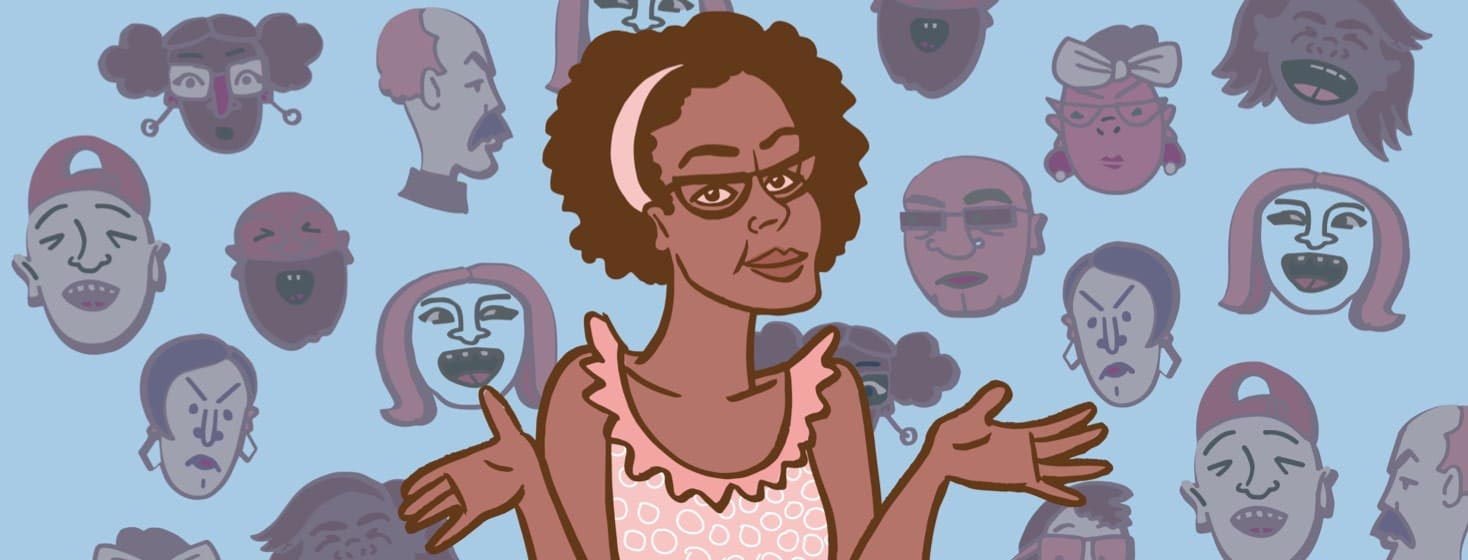How I Shut Down Uncomfortable Conversations Around Endometriosis
As an endometriosis patient, I talk about this disease a lot. I have discussed it with a myriad of health professionals, relatives, and even strangers. Despite it affecting as many people as diabetes, to most, this chronic illness remains a mystery.
If someone has no experience with this disease - and they are not a doctor - I am generally happy to respond to any questions they may have.
Yet, I have had my fair share of strange interactions over the years. Individuals always seek to mask their ignorance or discomfort by questioning their own experience of this disease.
Navigating endometriosis discussions on my terms
I've met people who refused to take in what I am saying, some who thought they knew better than me, and plenty who had no clue how invasive their questions were.
Let me tell you. It feels awesome to shut down others when what's being discussed is my body.
I do not let others refute what works for me
I'll never forget how surprised a doctor was when I replied, "Through my diet," when he asked how I handled my symptoms. Their eyes widened as they quickly turned to their computer screen, moving on to something else.
Was I a weirdo for attempting to manage my flare-ups in a way that worked for me? Did this doctor think I was a complete idiot?
In cases like this, I stop talking. To that doctor, I could have explained how eating to avoid inflammation kept my pain to a minimum. I would have done this using facts and science. But I only wanted to get my prescription and never see them again.
It is tiring to explain or defend my decisions regarding this illness repeatedly. I will always choose silence when the person in front of me exhausts me in the time it takes to mispronounce endometriosis.
Just because this disease is invisible does not mean I have to prove I live with it
I live with severe, life-disrupting symptoms. And while endometriosis can be classed as a disability, it is invisible to most. I regularly mask my flare-ups around others and will choose not to stay at home when unwell.1
Yet this does not make this condition any less severe. Statements like "You don't look ill" are ones I am happy to ignore.
I will not provide any details about my health, my diagnosis, or the meds that are helping me function to anyone other than my doctor.
I have no energy for conversations about a cure
Endometriosis is still insufficiently researched, and there is no actual cure. However, many find a line of treatment that works and stops flare-ups for good.
Being told that someone else found something that made their symptoms disappear will always fill me with joy, but their experience does not apply to me. If anyone tries to insist otherwise, I tell them I will not enter a debate about my body and happily look the other way.
I gladly tell others to stay out of my uterus
Any talk about my fertility or any child-bearing intentions is something I have learned to cut real fast. For years, I offered short and sweet yes or no answers, sometimes even discussing fertility ratios or the general state of my womb. Now I simply say how this is a private subject and not something I wish to discuss in the queue for my oat latte.
I can't control what other people say, but I can control how I react
How I behave following any of these uncomfortable exchanges is up to me. In these situations, I am the one who is the most vulnerable, not the person who does not live with this cruel disease.
My silence is a form of self-preservation. If anything, being diagnosed with endometriosis should come with a certificate that states how patients are under obligation to offer answers that please others, and a "mind your own business" badge as big as my face.
Is there anything that you would add to my list? Add them to the comments below.

Join the conversation